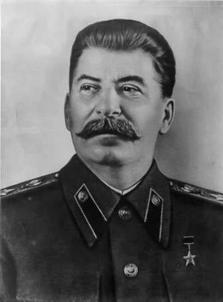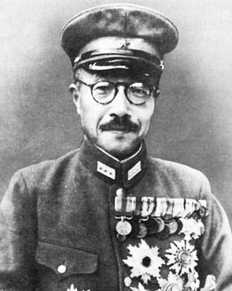The Devastating Post World War I Changes
There were many reasons why totalitarian governments rose in the 1930’s. Most of these were due to the Great Depression and the unrest in the countries of Russia, Rome, Germany, and Japan. These totalitarian governments provided relief to the people of the countries when all hope was lost. Many people had little or no money and barely any food to feed the family. The reasons that best explain the rise of totalitarian governments under Stalin, Tojo, Hitler, and Mussolini are the Great Depression, dying economy, and the desperation of the people.
The Great Depression was one of the reasons that led to the rise of the totalitarian governments (1930's and the Great Depression). The prices skyrocketed and people had the minimum wage. Many people became desperate and longed for a release from their problems. This made people turn to the extremist for help (Esler). These extremists happened to be the dictators who would turn the government into a totalitarian one.
A dying economy caused by the Great Depression would greatly influence the peoples’ ability to use their judgment wisely. To a starving homeless, the chance of getting long term relief from a convincing man might be a better option than a chance at having food for a week. Thus said, a totalitarian leader would have little trouble convincing the citizens to listen to them and give them their full support. A dying economy greatly hinders a person’s ability to pass good judgment.
Desperation can do many things to a person. It can make someone believe every word another says, like believing that soon-to-be dictators would really provide a relief to their suffering. Hitler, Mussolini, Tojo, and Stalin all promised a relief or a slightly better economy when they needed to gain power (Esler). Once they gained power, their promises were like the peoples’ pockets, empty. They did not honor their promises and many people continued to suffer anyways.
Many totalitarian leaders most likely gained power in many ways. They could’ve gained power from the Great Depression, the dying economy, or the desperation of the people. Unless people were to have a fool proof way of keeping dictators and corruption out of their country, there is no guarantee that there won’t be any more totalitarian governments.
The Great Depression was one of the reasons that led to the rise of the totalitarian governments (1930's and the Great Depression). The prices skyrocketed and people had the minimum wage. Many people became desperate and longed for a release from their problems. This made people turn to the extremist for help (Esler). These extremists happened to be the dictators who would turn the government into a totalitarian one.
A dying economy caused by the Great Depression would greatly influence the peoples’ ability to use their judgment wisely. To a starving homeless, the chance of getting long term relief from a convincing man might be a better option than a chance at having food for a week. Thus said, a totalitarian leader would have little trouble convincing the citizens to listen to them and give them their full support. A dying economy greatly hinders a person’s ability to pass good judgment.
Desperation can do many things to a person. It can make someone believe every word another says, like believing that soon-to-be dictators would really provide a relief to their suffering. Hitler, Mussolini, Tojo, and Stalin all promised a relief or a slightly better economy when they needed to gain power (Esler). Once they gained power, their promises were like the peoples’ pockets, empty. They did not honor their promises and many people continued to suffer anyways.
Many totalitarian leaders most likely gained power in many ways. They could’ve gained power from the Great Depression, the dying economy, or the desperation of the people. Unless people were to have a fool proof way of keeping dictators and corruption out of their country, there is no guarantee that there won’t be any more totalitarian governments.
Works Cited
1930's and the Great Depression. 1930's.
Esler, Ellis. "The Western Democracies Stumble." Esler, Ellis. World History: The modern World. Boston, Massachusetts: Pearson Education, Inc., publishing, 2007. 427-433.
Esler, Ellis. "The Western Democracies Stumble." Esler, Ellis. World History: The modern World. Boston, Massachusetts: Pearson Education, Inc., publishing, 2007. 427-433.




